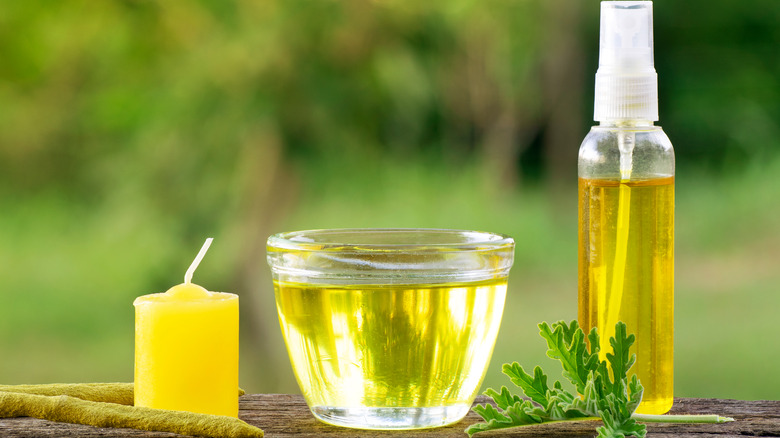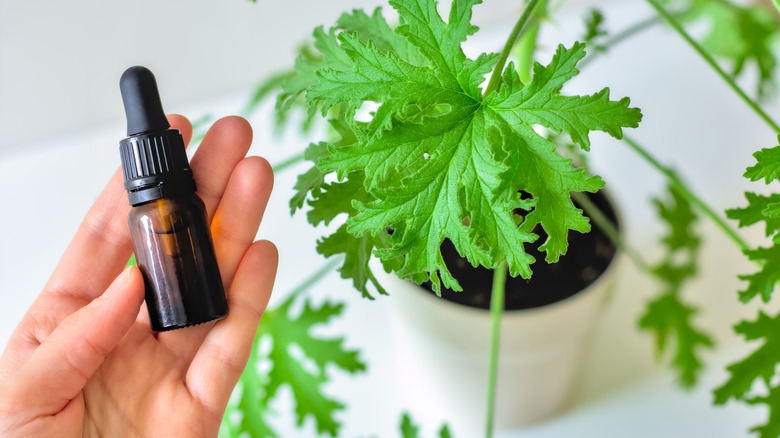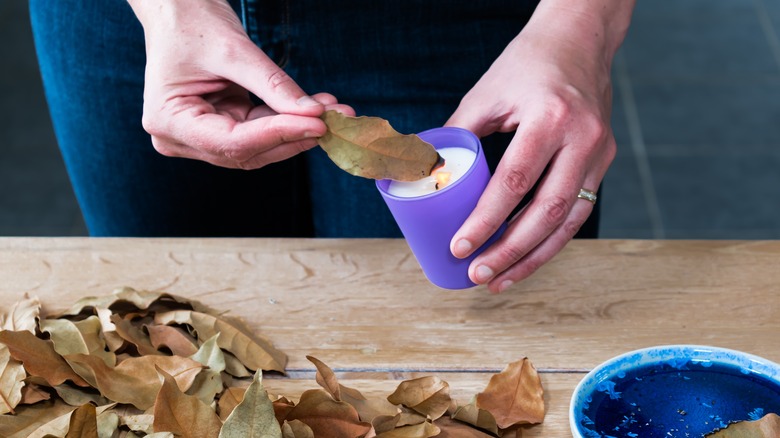Does Citronella Really Work To Keep Mosquitoes Away From Your Home?
Citronella candles are commonly used as a mosquito repellent during warm and humid months, but they're unfortunately not 100% reliable. The problem stems from an insufficient concentration of citronella oil in most commercially available candles, oils, punks, and topicals. While citronella oil does possess mosquito-repelling properties, for the most part, these products generally contain minimal amounts of citronella oil — which means more meals for the mosquitos and less outdoor fun for you.
Citronella is derived from a family of grasses known as the Poaceae family, and it's also related to lemongrass. Citronella's use as an insecticide can be traced back to around 1882. Originating in Southeast Asia, citronella's aromatic nature and citrus-like scent acted as a natural deterrent to mosquitoes and other insects. Over time, this knowledge spread to other regions, leading to the development of citronella-based products like oils, and lotions. Today, citronella remains one of the most popular all-natural choices for those seeking relief from mosquito attacks. While its effectiveness can vary depending on factors like concentration and application, citronella continues to be widely used for mosquito protection.
When does citronella work
Citronella's effectiveness as a mosquito repellent can vary depending on several factors. The concentration of the active compounds, the specific type of mosquito species, and how much citronella a person can tolerate, all come into play. In general, mosquito repellents that have an essential oil concentration of 20% or higher are considered to have better mosquito-repelling properties — anything lower may not have the desired effect. Studies have shown that citronella concentrations in the range of 20% to 30% can provide some level of protection against mosquitoes, though it's nothing comparable to synthetic repellents like DEET.
It's also important to note that everyone will have a different reaction to citronella. Some people emit more CO2 than others, which makes them look like more of a tasty meal. Therefore, certain people may find citronella-based repellants to be less ineffective and might need to wear a protective layer of clothing. Environmental factors, like wind and mosquito activity levels, can also influence how well your citronella products work.
Ways to boost citronella's protection
Citronella candles or punks are often toted as the go-to for repellant, but other than smelling somewhat nice (depending on who you're talking to), they don't do too much. While these products may offer some level of mosquito-repellent properties, combining them with other methods can enhance their effectiveness. For instance, using fans to create airflow in outdoor areas can help disperse the scent of citronella, which makes it harder for mosquitoes to track the scent of their next meal.
Another option is to integrate homeopathic remedies to help bolster your citronella force field. Burning herbs like sage, rosemary, lemongrass, and lavender will produce smoke that mosquitoes just can't handle. Vanillin is also said to help extend mosquito protection by up to three hours. Additionally, eliminating sources of standing water around the home, where mosquitoes breed, can significantly reduce their population. In areas that have a high mosquito count, you might want to invest in a physical barrier to create the ultimate protective mosquito bubble.


